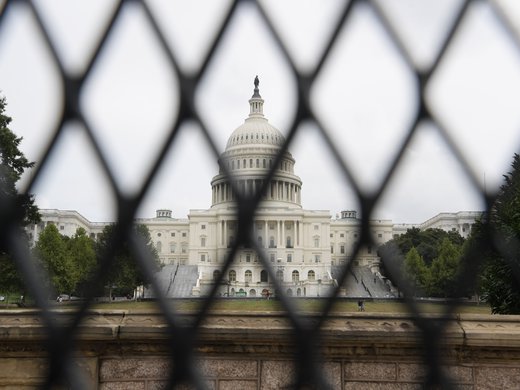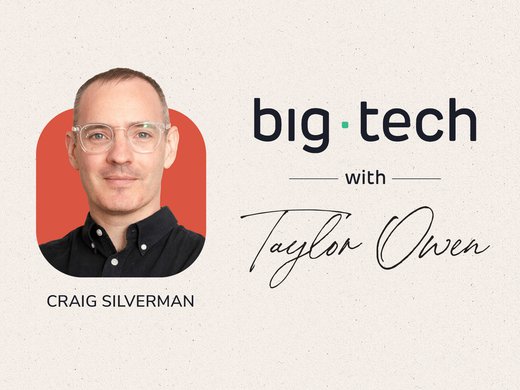Much remains unclear about the individuals and groups gathered in Ottawa for the past 10 days to protest vaccine mandates and other measures designed to prevent the spread of COVID-19. What is clear is that some waved Nazi and Confederate flags. It’s also clear they could not have stayed this long without significant financial support. That financial support came through a fundraiser for “Freedom Convoy 2022” hosted on GoFundMe — funds since cut off amid the controversy.
If that financial support surprised politicians and law enforcement, it was because they often focus on online speech without considering how other elements of the online ecosystem can promote hate or even violence in the offline world. I testified about this in May 2019 before the Standing Committee on Justice and Human Rights. Here is the exact paragraph from my testimony:
It is also valuable to move beyond individual pieces of content. How, for example, do we deal with ecosystems and infrastructures that enable the financing of extremist speech? For example, one member of the Canadian far right tried to use GoFundMe to raise money for an appeal against a libel suit. The ruling in that case, written by Ontario Supreme Court Justice Jane Ferguson, called the far-right man’s words “hate speech at its worst.” Only after complaints was the campaign removed. Such fundraising by extremist figures that violates a platform’s terms of service is a common occurrence; the campaigns are often only removed after platforms are alerted by civil society. This example is one illustration that law is a vital part of these discussions, but we should remember that it covers one small part of harmful speech online.
Crowdsourced fundraising for hate is not new to Canada. GoFundMe has played a role for some years, as the example in my testimony pointed out. Obviously, many factors have influenced what is happening in Ottawa. But money has played a huge role. How might the entire situation have played out differently if policy makers had paid attention to and better regulated those funding ecosystems earlier?
GoFundMe’s slow reactions have fundamentally changed the course of the convoy’s occupation of Ottawa. The company initially released $1 million of the $10 million raised by the organizers, only suspending the fundraiser for violating its terms of service on February 4, 2022. That was six days after the convoy had reached Ottawa. The organizers had plenty of cash and plenty of time. Bizarrely, GoFundMe had initially planned to “work with organizers to send all remaining funds to credible and established charities chosen by the Freedom Convoy 2022 organizers and verified by GoFundMe.” The company swiftly changed to providing automatic refunds “due to donor feedback.”
The problem is not that politicians were not warned. It is that they did not seem to pay attention. The Standing Committee on Justice and Human Rights released its final report, entitled Taking Action to End Online Hate, in June 2019. The report does not mention GoFundMe or crowdsourced fundraising.
Even more frustratingly, one of my fellow panellists at that testimony had offered some specific solutions, which went unheeded. Anver Emon, Canada Research Chair in Islamic Law and History and a professor at University of Toronto, suggested that Canada “use existing financial monitoring regimes to turn off the spigot of funding across the board.” Emon believes the Canadian government could build upon the Financial Action Task Force (FATF) that was founded in 1989 to address money-laundering in the drug trade. “What does this have to do with online hate?” Emon asked at the time, then explained to the committee: “While you will no doubt hear many arguments about freedom of expression as you attempt to regulate online hate, you already have a mechanism in place to track the financial funding of such hate, namely, FATF special recommendation number 8, which identifies charities and other not-for-profit organizations as being vulnerable to terrorist financing.”
I (and many others!) had identified the problem back in 2019, while Emon offered one potential solution. So, why do we find ourselves in this situation in February 2022?
First, the Government of Canada took too long to recognize the threat of white supremacy. In 2015, Finance Canada listed the top 10 groups posing the greatest threat for terrorist financing. As Emon pointed out, eight of those 10 groups were “Muslim-identified groups; one is Tamil and the other is Sikh. In other words, as far as the Government of Canada is concerned, 100% of terrorism financing risk comes from racialized groups and 80% comes from Muslim-identified groups. Nowhere in the 2015 document is there reference to white supremacist groups, white extremist groups and so on, despite the fact that such groups are no less prone to violence, as we have sadly seen.” Only in February 2021 did the Canadian government finally designate white supremacist groups as terrorist organizations, including Atomwaffen Division and Proud Boys.
Second, it is tempting to focus on online hate over and above other mechanisms. I too spend much of my time researching online hate and the best approaches to ameliorate it. But we ignore an ecosystem at our peril.
Finally, policy makers sometimes forget that they can use existing structures and mechanisms to address newer issues. Tracking funding through the FATF is an excellent example. In October 2021, the FATF actually downgraded Canada’s performance on special recommendation 8 to “partially compliant.”
As Amarnath Amarasingam has detailed, GiveSendGo is positioning itself as an alternative to GoFundMe. Founded as a Christian crowdfunding site, it hosted a fundraiser to help defend the leader of the Proud Boys. Now it is the new fundraiser of choice for the Ottawa convoy and has raised more than $2.4 million. The GoFundMe problem has migrated to another platform. Solving this issue is long overdue. When researchers warn about problems, they definitely would rather not write a piece three years later that sounds like “I told you so.”
This article first appeared in the Toronto Star.



